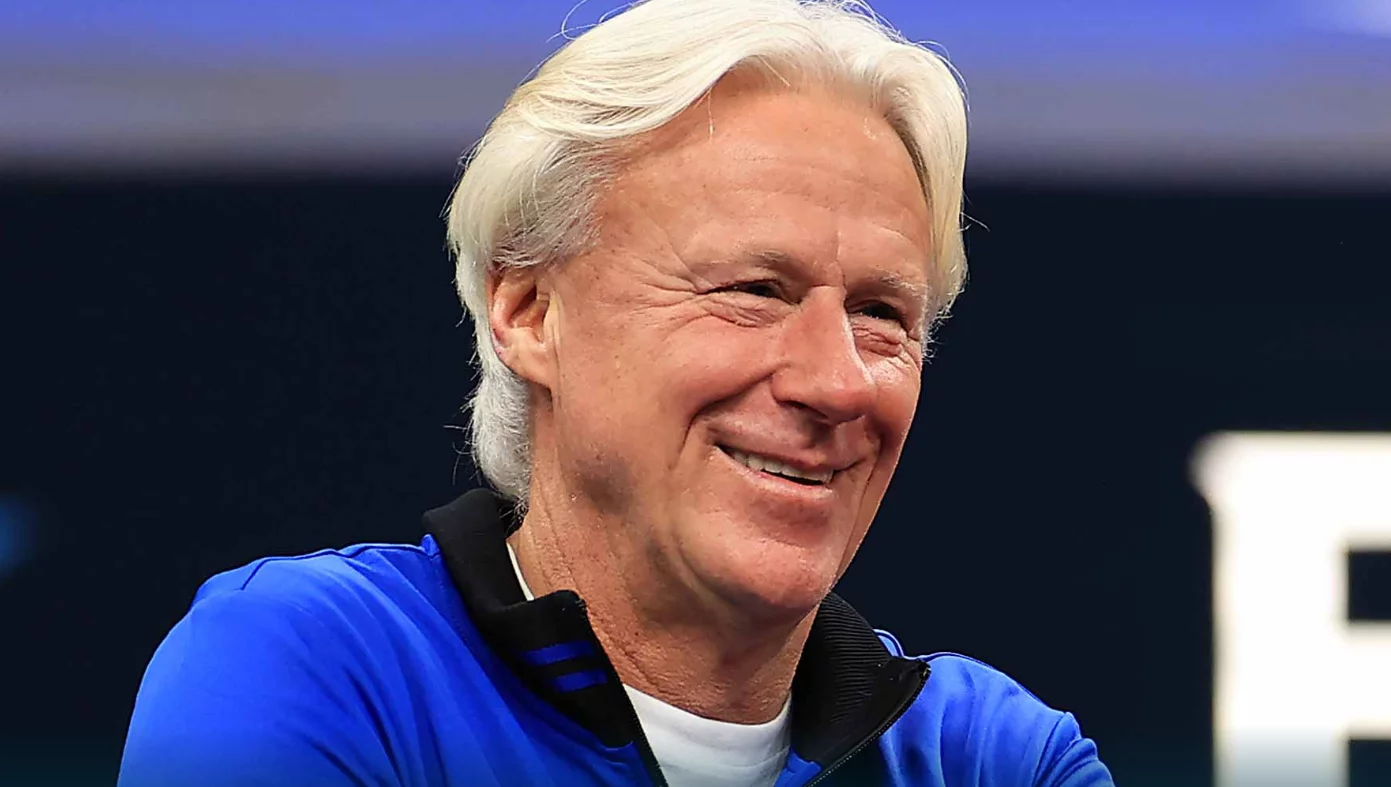BREAKING NEWS: Tennis Legend Bjorn Borg Reveals the Secrets Behind His Retirement at the Age of 26
In an unexpected and revealing interview, tennis legend Bjorn Borg opened up about the secrets behind his stunning retirement from professional tennis at the age of 26. Known for his ice-cool demeanor and unparalleled success on the court, Borg’s decision to step away from the sport at the peak of his career has been a subject of speculation and intrigue for decades. Today, Borg sheds light on the personal and professional factors that influenced his decision, providing a glimpse into the mind of one of tennis’ greatest players.

The Rise of a Legend
Bjorn Borg’s ascent in the world of tennis was meteoric. Born in Sweden in 1956, he quickly established himself as a prodigy, known for his relentless work ethic and fierce competitiveness. Borg turned professional at the age of 15, and by the time he was 20, he had already won his first Grand Slam title at the French Open in 1974.
Over the next few years, Borg dominated the tennis world, winning 11 Grand Slam singles titles, including six French Open titles and five consecutive Wimbledon championships from 1976 to 1980. His rivalry with American tennis star John McEnroe became legendary, culminating in the epic 1980 Wimbledon final, which is still regarded as one of the greatest matches in tennis history.
The Burden of Success
Despite his success, the pressure and expectations that came with being at the top of the sport began to take a toll on Borg. In the interview, Borg revealed that the constant scrutiny and demands of professional tennis were more draining than he had ever anticipated.
“The pressure was immense,” Borg admitted. “Every match, every tournament, I felt like I had to win. The expectations were so high, and I put a lot of pressure on myself to meet them. It was exhausting, both physically and mentally.”
Borg described the relentless schedule of professional tennis, with little time for rest or recovery. The grind of traveling from one tournament to another, coupled with the need to maintain peak physical condition, left him feeling burnt out and fatigued.
The Desire for Normalcy
One of the most surprising revelations in Borg’s interview was his longing for a sense of normalcy. Despite his fame and fortune, Borg yearned for a more balanced and private life. He spoke candidly about the sacrifices he made in his personal life to achieve his tennis success, and how those sacrifices began to weigh heavily on him.
“I missed out on a lot of things,” Borg said. “I didn’t have a normal childhood or teenage years. While my friends were going to school dances and parties, I was on the tennis court or traveling to tournaments. I wanted to experience a different side of life, to have time for myself and my loved ones.”
Borg’s desire to reclaim his personal life played a significant role in his decision to retire. He wanted to explore other interests and spend more time with his family and friends, away from the constant demands of the tennis circuit.
The Strain of Rivalries
Borg’s rivalries, particularly with John McEnroe, were a double-edged sword. While they elevated the sport and brought out the best in him, they also contributed to the intense pressure he felt. The mental and emotional toll of facing fierce competitors match after match was significant.
“My matches with John [McEnroe] were incredible,” Borg acknowledged. “He pushed me to my limits, and I think we brought out the best in each other. But it was also draining. The rivalry was fierce, and there was a lot at stake every time we played. It added to the stress and pressure I was already feeling.”
Health Concerns
Borg also cited health concerns as a factor in his decision to retire. The physical demands of professional tennis, coupled with the grueling travel schedule, took a toll on his body. Despite his rigorous training regimen, Borg began to experience chronic injuries and fatigue.
“I was dealing with a lot of physical issues,” Borg revealed. “My knees, my back – they were constantly bothering me. I knew that if I kept pushing myself, I could risk long-term damage. I wanted to preserve my health and well-being for the future.”
A New Chapter
When Borg announced his retirement in 1983, the tennis world was stunned. Many believed he still had many years of competitive play ahead of him. However, Borg was resolute in his decision, and he embarked on a new chapter in his life.
Post-retirement, Borg explored various business ventures, including launching his own line of sportswear. He also took time to pursue personal interests, including spending more time with his family and indulging in his passion for fishing and nature.
“I needed a change,” Borg said. “Retiring from tennis allowed me to rediscover myself and pursue other passions. It was a difficult decision, but it was the right one for me.”
Reflections and Regrets
Looking back, Borg has no regrets about his decision to retire. While he acknowledges that he left the sport at a time when he was still at the top of his game, he believes it was necessary for his overall well-being and happiness.
“I have no regrets,” Borg affirmed. “Tennis gave me so much, but it also demanded a lot. Stepping away allowed me to find balance and happiness in my life. I achieved more than I ever dreamed of, and I’m grateful for that.”
Borg’s reflections offer valuable insights into the complexities of professional sports and the pressures faced by elite athletes. His story serves as a reminder of the importance of mental and physical well-being, and the courage it takes to make difficult decisions in pursuit of a fulfilling life.
Legacy and Influence
Despite his early retirement, Bjorn Borg’s legacy in tennis remains unmatched. His contributions to the sport, his iconic rivalries, and his record-breaking achievements have left an indelible mark on tennis history. Borg’s influence extends beyond his playing career, as he continues to inspire new generations of players with his dedication, sportsmanship, and passion for the game.
“Bjorn Borg is a legend,” said John McEnroe, his longtime rival. “He changed the game and set new standards for excellence. His decision to retire was shocking, but it was his choice, and I respect that. He remains one of the greatest players of all time.”
Conclusion
Bjorn Borg’s revelations about his retirement at the age of 26 offer a rare glimpse into the mind of a tennis legend. His story highlights the immense pressures faced by elite athletes and the importance of prioritizing mental and physical health. Borg’s decision to step away from the sport, while surprising, was a courageous choice that allowed him to find balance and happiness in his life.
As Borg continues to inspire and influence the world of tennis, his legacy serves as a testament to the enduring power of passion, dedication, and the pursuit of personal fulfillment. His journey reminds us that even the greatest champions must navigate the complexities of life and make choices that honor their well-being and happiness.
4o




